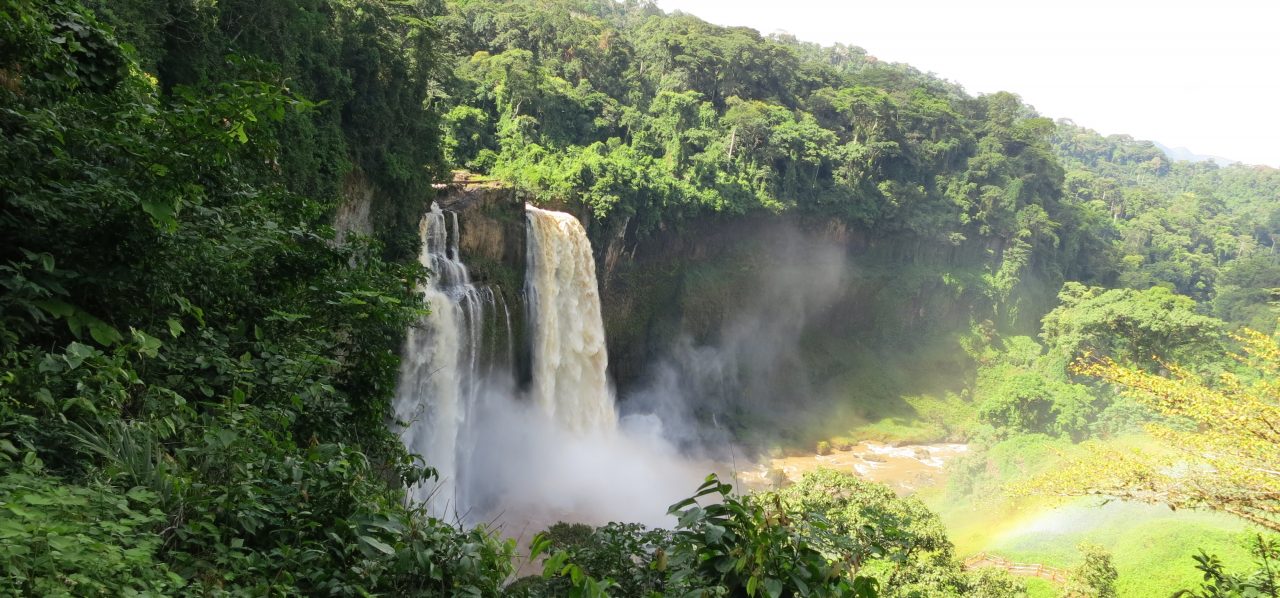
How many Cameroonians have heard of Joseph Merrick? The Jamaican and first missionary to create a mission on the coast of Cameroon? Most people are used to hearing about the British missionary Alfred Saker who “brought” christianity to the coastal towns of Cameroon, and is often referred to as the pioneer, even though he was first hired as a ship mechanic, millwright, and naval engineer before becoming a missionary upon his arrival. So there are thousands of schools and streets named after this “great” white man in Cameroon: College Alfred Saker and Boulangerie Saker in Douala, Saker Baptist College in Limbe, to name just a few; there is even a monument to this man in downtown Limbe. Can you imagine my surprise when I learned that Alfred Saker was not the “pioneer” I had been made to believe, but rather a later pioneer following on the footsteps of others? Yes… Alfred Saker came after others had started sewing the seeds of Christianity on Cameroonian soil, and his main advantage was that he was a European (let’s call a spade a spade). The real man who should be considered missionary pioneer to the coastal towns of Cameroon was the Jamaican Baptist missionary, Joseph Merrick, who, assisted by another Jamaican Joseph Jackson Fuller, established the first successful mission on the Cameroonian coast of Africa.

Who was Joseph Merrick? Joseph Merrick was a Black Jamaican, who began preaching in 1837 in Jamaica and was ordained a full missionary in 1838. The work of the Baptist Society in Cameroons was an outcome of the freeing of the slaves in Jamaica. Many thousands of these freed slaves were members of Baptist Churches in that island, and the first-fruits of their new found liberty was the desire to help their own people in Africa, the land of their origin. Thus, Joseph Merrick had been recruited by the Baptist Missionary Society of London who was looking for Jamaicans to preach in Africa. Merrick, accompanied by his wife, arrived in Spanish-controlled Santa Isabel (then Clarence, and today known as Malabo) on the island of Fernando Po (Bioko) in 1843. In 1844, he visited Bimbia (near Limbe) and spoke to King William (William of Bimbia) of the Isubu people to request permission to establish a church on the mainland. After the initial resistance, he was granted permission, and in 1844-1845 he founded the Jubilee Mission. Over the next 5 years, he set up to translate parts of the New Testament in the Isubu language, set up a brick-making machine, a printing press, and translated the bible, and wrote a textbook for teaching in Isubu.

Adventurous, Merrick made several excursions into the interior from the coast, and climbed Mount Cameroon, thus becoming the first non-African to visit the Bakoko people.
Unfortunately, in 1849 he got sick, and set off to England with his wife for treatment but died at sea. Upon his death, Joseph Jackson Fuller took charge of the mission station and congregation at Bimbia. Merrick’s efforts also paved the way for Alfred Saker to make further progress – he made use of Merrick’s printing press to translate and print the Bible in Duala. Joseph Merrick can be seen as the pioneer of the missionary work in Cameroon. He had a talent for learning languages and within a short time he preached in both Isubu and Duala.

In essence Joseph Merrick is the man who should be celebrated, just as much as Alfred Saker, if not more, particularly in the Limbe region. Why has Joseph Merrick been forgotten? Is it because he was Black?

